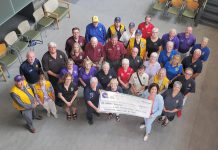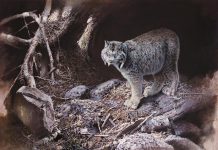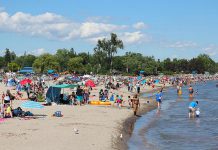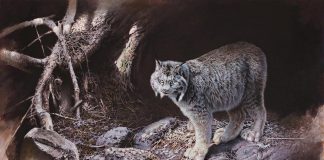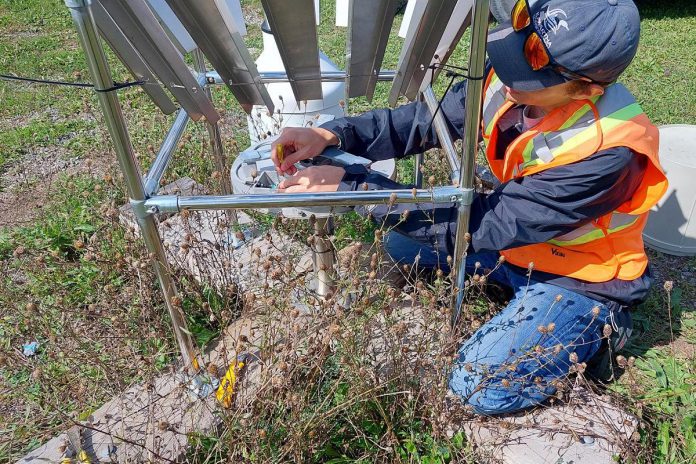
Kawartha Conservation is extending a call to community members in Kawartha Lakes and neighbouring areas to become citizen scientists.
Residents are encouraged to join Kawartha Conservation’s Climate Change Action Program (CCAP), a volunteer program to monitor climate data. Spearheaded by community members, volunteers help compile essential environmental information across the Kawartha Lakes region.
“The core goal of our program is to engage the Kawartha Conservation watershed community through direct involvement in gathering precipitation and water temperature data,” said Nathan Rajevski, assistant watershed resources technician for Kawartha Conservation.
“Our aim is to foster a deeper understanding of climate change impacts by empowering residents to conduct measurements at their residences, while continuing to bring awareness to the topic,” Rajevski told kawarthNOW. “This data not only enriches our annual summary reports for the program, but also informs decision making for our flood forecasting network and our corporate climate change strategies.”
Volunteers, through their collection of information, also help foster a broader comprehension of the shifts in climate, which empowers both the community and the environment, Kawartha Conservation noted.
“The program has consistently delivered substantial benefits to the community,” Rajevski added. “The positive feedback we’ve received underscores the program’s value, with many expressing appreciation for the insights gained into daily rainfall amounts and the ability to personally assess data from water temperature loggers at the end of each season.”
The conservation authority said participating in CCAP gives residents the chance to be a catalyst for change within their respective communities.
The call for citizen scientists extends to residents within the Kawartha Lakes, Scugog, Brock, and Trent Lakes area, including Port Perry, Blackstock, Fleetwood, Downeyville, Nogies Creek, Crystal Lake, Oakwood, and the Glenarm Road area.
In the coming months, volunteers will collect precipitation data from their property, and those situated on waterfronts can also gather water temperature data. Kawartha Conservation will provide the necessary training, rain gauges, and water temperature loggers at no cost, ensuring everyone can participate easily.
The program runs within the watershed areas concentrated in Durham Region (Scugog and Brock Townships), Kawartha Lakes, and Trent Lakes, focusing on precipitation data collection from May through September (or year-round) and water temperature monitoring from June 1 to August 31.
Rajevski said Kawartha Conservation appreciates both its sponsors and citizen scientists for their roles in the success of the program.
Space is limited. Interested volunteers are encouraged to sign up through the Kawartha Conservation website at kawarthaconservation.com/en/learn-and-get-involved/citizen-science.aspx.




